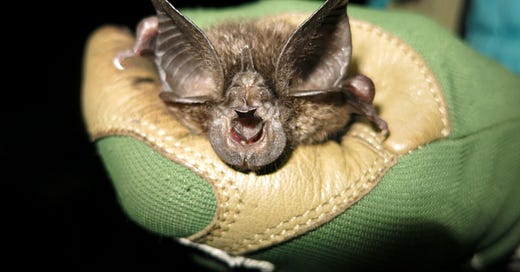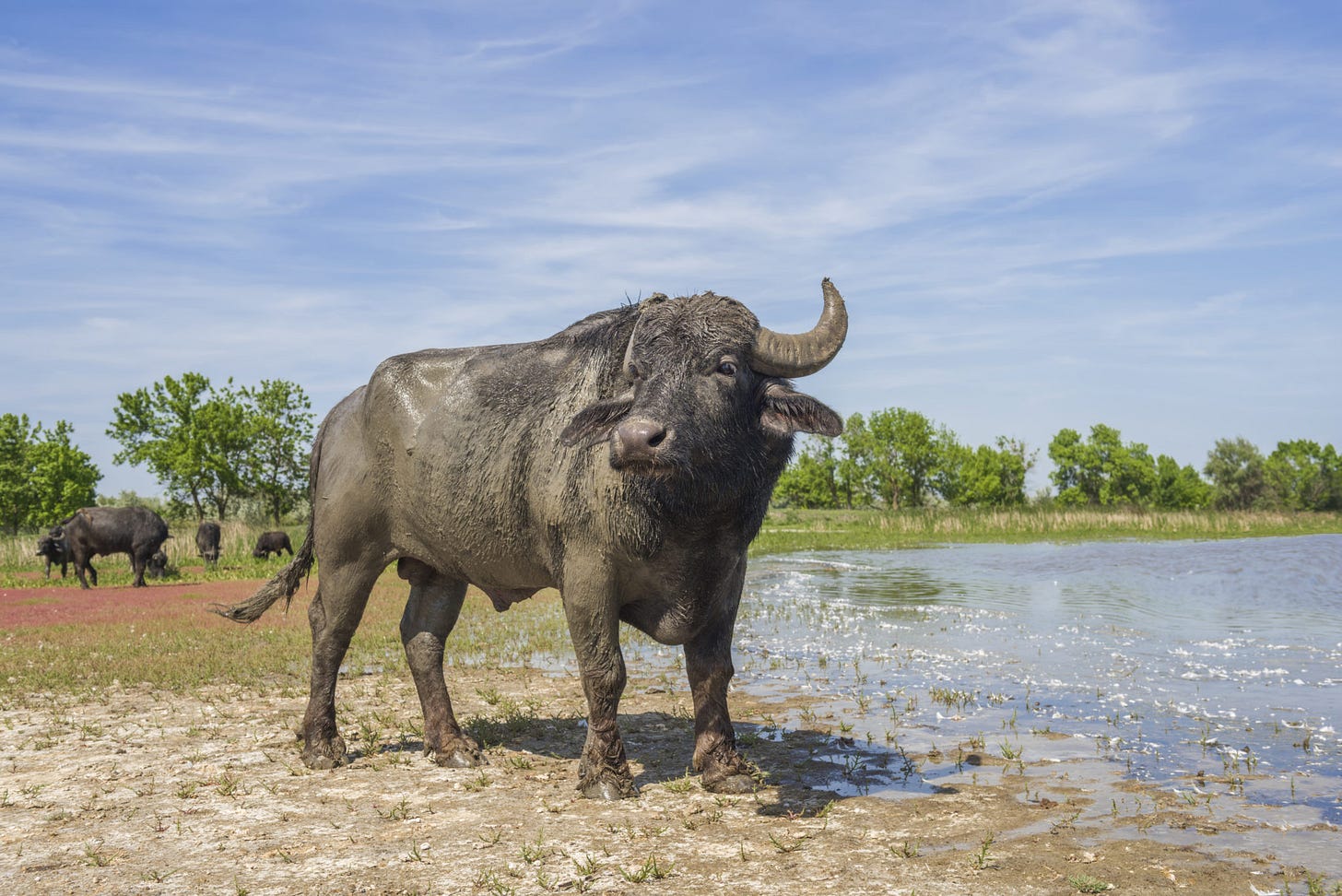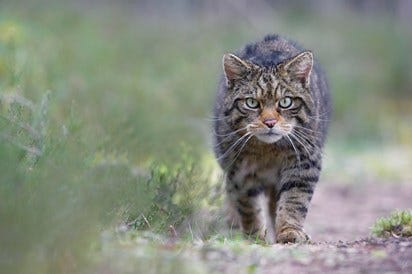Batshit crazy Putin and the Hill's horseshoe bat
With some rewilding in Ukraine and elsewhere thrown in...
It was rediscovered by a multinational team of experts led by Bat Conservation International (BCI), Rwanda Development Board (RDB), and the Rwanda Wildlife Conservation Association (RWCA).
“Going into this project we feared the species may have already gone extinct. Rediscovering Hill’s horseshoe bat was incredible – it’s astonishing to think that we’re the first people to see this bat in so long,” said Dr Jon Flanders, BCI’s Director of Endangered Species Interventions. “Now our real work begins to figure out how to protect this species long into the future.”
The rediscovery comes after the culmination of a survey starting in 2013, including a ten-day expedition to Nyungwe National Park in January 2019, when they first spotted the bat.
Okay, its re-entry into our consciousness may not see Putin putting a halt to slaughtering our Ukrainian brothers and sisters. But it is a victory for endangered species nonetheless, especially as the bat has survived huge pressures in its forest home for many years, including a four-year civil war in the 1990s, where between 500,000 and 1,000,000 people were killed in the Rwandan genocide in just 100 days.
Obviously, war has a devastating impact on animals, both domestic and wild, and they are often the last to be considered in people’s desperation to survive. Soldiers may kill wild animals for food or if used for traditional medicines, they can be used to raise money while local communities can be forced to turn to poaching and eating wildlife.
Via Zoom, I recently attended the Wildlife Trust’s excellent talk about rewilding with experts from the UK as well as Romania and Ukraine. It was a week before Putin invaded and it still seemed unthinkable that he would actually command his troops gathered on the border for ‘military exercises’ into another country.
During the panel, Micha, the Ukraine programme manager for Rewilding Europe, spoke about rewilding the Danube Delta, Europe’s largest wetland area covering parts of Romania, Moldova and Ukraine. Many species were killed off in the 18th and 19th centuries and the wetlands lost all their wildlife and became depleted areas of reeds. Now the beautiful area of lakes, wetlands, steppes and forest is home to water buffalo, ancient cattle and the coolant - a wild donkey - and, let’s hope, not to Russian bombs at any point. It’s ironic that Putin’s love for the tiger, which has seen the Amur or Siberian tiger bought back from extinction in Russia, doesn’t stretch to his neighbours who exhibit those very attributes he admires so much in tigers such as bravery and power in defending themselves.
Ukraine is way ahead of the UK in terms of rewilding. In fact, the UK is nearly at the top of the world table for destroying our native species - something Mr Johnson, should he wish to stop telling lies any time soon, can accurately claim as world-beating. We deserve a big pat on the back for all that shooting, hunting and torturing of the lynx, beaver, wild cat, wolf, bear, auroch (wild cow), lynx and bison over the last few hundred years to reach such dizzying heights.
In Romania, we heard about wild bison being successfully rewilded into the Carpathians and now Kent is to get its own herd of bison in the next few weeks when Kent Wildlife Trust release them into a large enclosed area of Blean Woods, near Canterbury.
Another Kent-based organisation, Wildwood Trust, also spoke about re-introducing the wildcat, already released into Scotland. Wild cats died out during the 1800s due to hunting and habitat loss and are being bred at the moment to be rewilded once a suitable area is found in England - one with not too many domestic cats, or even harder perhaps, people.
Apparently, the public’s biggest fears are around wild cats killing or even breeding with Fluffy, yet there is no evidence either has happened in Scotland. They are incredibly shy creatures who, I’m sure, would rather eat their own paws than come anywhere near us lumbering destructive idiots or our cats.
Finally, the panel were asked to envisage the UK in 50 years time and imagined a landscape of lynx, wildcat, bears, wild boar, wild cattle, wild horses, beavers and, as wolves have returned to the Netherlands and Belgium, why not here? Just imagine how wonderful that would be.
My middle-grade book The Mystery of the Missing Fur is available from Waterstones, Amazon and many bookstores worldwide.






